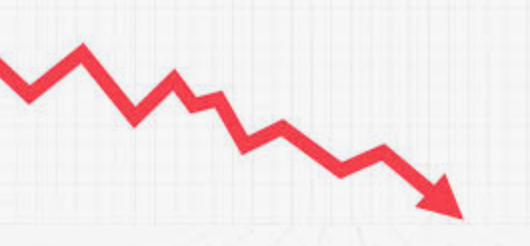The claim crime will increase when you legalize weed was a major talking point, but it seems it doesn’t have the data to back it
Over 50% of the country has access to legal marijuana now. Ohio and Delaware will start selling from state licensed dispensaries this year. Even Florida, the largest nanny state, is voting for full recreational cannabis sales and has 66% public approval. But what about the claim allowing access to marijuana will increase crime? Well, data shows legal marijuana expands as hard crime drops.
RELATED: California or New York, Which Has The Biggest Marijuana Mess
Data released in June 2024 from the Federal Bureau of Investigations (FBI) show violent crime from January to March dropped 15.2% compared to the same period in 2023, while murders fell 26.4% and reported rapes decreased by 25.7%. Aggravated assaults decreased during the period when compared to the previous year by 12.5%, according to the data. Robberies fell 17.8% and burglaries by 16.7%. Property crime decreased 15.1%, while motor vehicle theft decreased by 17.3%. The declines in violent and property crimes were seen in every region of the US.

This follows a trend from last year with crime dropping in the United States. Which makes the marijuana increase crime an an odd talking point saying how legal marijuana will increase crime, but it has not played out. Both local and national trends show a drop and studies have said cannabis doesn’t increase crime.
Terran Cooper from Falcon Rappaport & Berkman LLP, a top national law firm with a cannabis division, states “The idea that the establishment of state-legal and licensed cannabis programs will result in increased crime has long been used to argue against cannabis legalization and decriminalization. Despite the existence of data to the contrary, many still highlight the association of cannabis to criminal activity. Some point to the localized cannabis-related crimes, in New York for example, as proof of a rise in crime following a State’s legalization of recreational or adult-use cannabis. However, an often-overlooked component in the rise of cannabis-related crime specifically, is the role a State’s cannabis program itself plays in subsequent criminal activity. Significant criminal activity across the United States can be associated with a State’s establishment of a cannabis program which underserves certain regions of that State. New York in particular, removed many criminal penalties associated with cannabis without establishing licensed dispensaries for many months following. The way in which a state legalizes cannabis, including viability of licensed businesses to compete with un-licensed businesses and general consumer availability can drastically impact a State’s cannabis related crimes.”
“We have consistently seen that more access to legal cannabis not only does not increase crime, but it can reduce it. A study in Colorado showed an additional dispensary in a neighborhood led to a reduction of 17 crimes per month per 10,000 residents, which corresponds to roughly a 19 percent decline relative to the average crime rate over the sample period.” shared Jesse Redmond, Managing Director, Water Tower Research, a leading firm in the cannabis industry.
These numbers do not mean the cannabis industry is clean, do gooders. California is still struggling with a robust black market hammering the legal one. California has burdened licensed companies with multiple high taxes, fees and almost zero help in reducing the black market. The Golden states weed farmers have been shipping products to New York’s mess despite it being clearly against the law.
RELATED: Was There Marijuana In The Old West
New York also seems to be fostering a white collar crime spree with their failed rollout of recreational marijuana. The states abruptly changed, at the last minute, the process to license legitimate dispensaries and businesses in the states has created grief, lawsuits, crushed mom and pop dreams and over 1,500 healthy unlicensed, illicit dispensaries in New York City. The state is still grappling with how to fix the mess, but isn’t having much success. As of this writing, the state has only managed to provide under 150 licensed stores who are competing with a vast number of competitors who don’t have the same tax burden.
The fact is that the unregulated, unlicensed illicit dispensaries probably total over 2,500 statewide. These illicit dispensaries didn’t exist prior to the passing of the MRTA in 2021. Instead, they were a result of the legislation which legalized cannabis for personal consumption and built a regulatory licensing scheme but, arguably, did not provide for enforcement against illicit operators who elected to operate outside of that regulatory scheme. As a result, we now have what I call a sub-unregulated market comprised of illicit shops owned and operated by individuals who are neither legacy operators nor with any connection to the plant other than profit. This was not an instance where legacy operators historically operating underground decided to enter the marketplace through smoke shops and bodegas, traditional brick and mortar stores, or by implementing gifting programs, or even a club-based model. Instead, they are comprised of entrepreneurial, sophisticated, wealthy businesspeople who saw an economic opportunity and took it. These are people who have no desire to enter the legal marketplace. Why would they when they are currently making anywhere between $15,000 – $40,000 a day on certain days, all tax-free.


